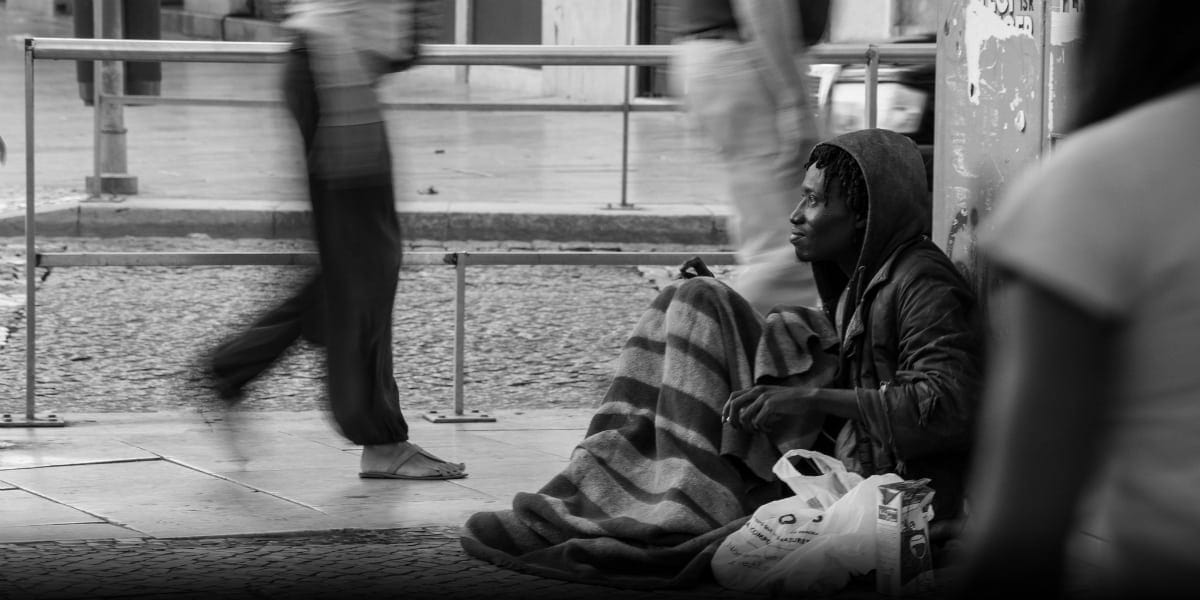Honour The People Who Take Charity From You – Ustadh Salman Younas
What is our body language and sense of self-importance when we give charity to others? Are we doing them a favour or are they doing us a favour? Ustadh Salman Younas puts things into perspective.
The crises we witness on a daily basis in places like Syria, Pakistan, regions of Africa, Afghanistan, and even here in our own homes has produced a sense of urgency in many of us to help those around us. Charity is perhaps the main activity we engage in to do what we can to assist those in need and difficult circumstances. My recent visit to Pakistan taught me something about charity that is worth sharing and reflecting on.
I returned to Pakistan just over two months ago after almost a decade to bury my father and grandfather (God have mercy on them and all people). Unlike where I live in the West, the suffering in parts of the world like Pakistan is very in your face. Everywhere you look you will see disheveled kids on the street selling things, disabled people begging, women looking for scraps to feed their families, people knocking on your car window in hopes of getting some money. I tried to give as much as I could especially given the circumstances I was experiencing in the hopes that my father and grandfather would benefit from my actions.
I remember being parked outside a KFC when I saw a very old man selling some balloons. I thought to myself, “Who will buy this from him and how will he earn enough through this to support himself much less a family?” So, I gave him some money. I then saw a very young child no older than seven or eight selling some bits and pieces. I gave him some money, too. Soon, more people showed up. One of them was another very elderly man with a walking stick who had a limp in his leg. I did not want more people to see me giving out money so I cracked open my door and stealthily put out my hand with some money without looking at the man. He took it and went off.
That was the moment when God made me realize my mistake: Charity was not simply the act of giving money but there is a whole manner in which it should be done that reflects how each of us should think about ourselves and the poor. I did not extend these people the courtesy of standing up, looking them in the eyes, giving them their due, and showing them the respect that all people deserve. Instead, I swiped a hand here and cracked open a window there in a way that reflected my view of myself as being on the higher plane, the fortunate one, the one who was doing such people a favor.
But I was not doing the poor a favor by giving them money but they did me a favor by taking it. They are not the ‘less fortunate’ for having less material wealth than me but I am the less fortunate for being showered in God’s blessings and yet being ungrateful. It is I who need their supplications more than they need mine, and it is I who will likely have a tougher reckoning in the next life than many of them. It is the poor who will fill up Paradise, they who will enter it first, and they who will surround the Prophet (God bless him) as affirmed in our texts. Where am I in relation to that?
From that day I made a promise to myself to see my charity as merely a fee being returned to its rightful owners, as Zubayda bint Ja’far did. I decided to humble myself in front of them, to stand up when giving them charity in a respectful manner when in person, hold their hands, request incessantly for their supplication (especially for my deceased), and to show them such respect even in instances of refusal. I decided never to think that I was doing them a favor but only to place my hope in God that He would accept whatever little I did.
And this is where the words of Abu Abd Allah al-Maghribi began echoing in my ears: “The greatest of all creatures is the well-off man who humbles himself before the poor and holds them in high regard,” and the words of Mu’adh al-Nasafi said: “God will never destroy a people, no matter what they do, unless they hold the poor in contempt and humiliate them,” and the words of Imam al-Qushayri: “The greatest freedom lie in serving the poor.”
And finally the words of the Prophet (God bless him): “Seek out the weak and vulnerable among you. You are only given provision and support due to your support of them.”
May God purify us, our wealth, our charity, and all of our actions.
Photo credit: Rui Duarte
[cwa id=’cta’]
